|
As one of the few nonprofit regional conservation centers in the United States, and the only such center in the western region, the Balboa Art Conservation Center is undergoing transformational change as it shifts into a radically inclusive and accessible art conservation organization. The BACC Board helps nourish this shift while ensuring the organization's vision for inclusion has long-term systemic impact. The BACC Board of Trustees is led by Board President Dana Springs and boasts a board membership that is 50% BIPOC (Black, Indigenous, and People of Color). In addition to its racial diversity, BACC board members are located throughout BACC’s service area, including Seattle, the Bay Area, Los Angeles, and San Diego. They bring a range and depth of expertise in community organizing, arts management and advocacy, fundraising, conservation, education, and financial management. Their diverse perspectives and skills are essential as BACC seeks to fulfill its vision for equity and healing within our own structure and workplace, as well as the communities we serve. Throughout 2023, we are highlighting each of our Board Members to better understand what excites them about being a part of the BACC Team at this transformative time. 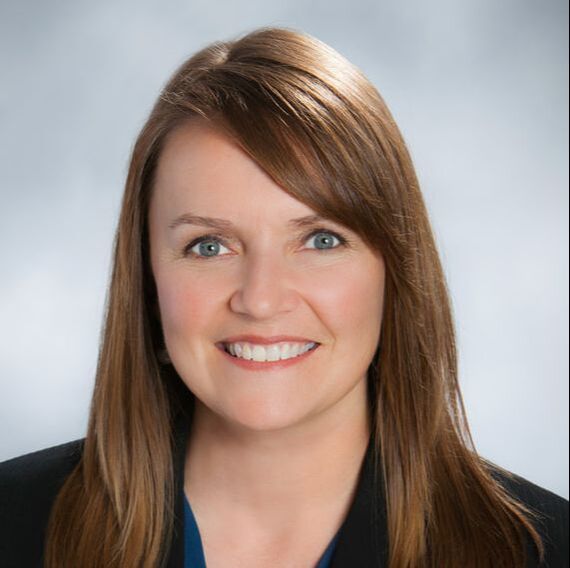 Kristin Beattie works for the University of California Irvine, where she supports management in successfully navigating labor and employment issues. Previously, Beattie served as an employment/labor advisory attorney at the San Diego County Sheriff’s Department, and before that, as a Senior Deputy City Attorney for the City of San Diego for over a decade. Across all endeavors, Beattie focuses on stakeholder partnerships, innovative and strategic problem solving, justice, equity, and ethics. She works creatively and collaboratively with management to achieve their priorities and recommends strategies for minimizing risk. In addition to her involvement with BACC, she volunteers her time to support Lawyers Club of San Diego and Riverview International Academy – and during the summer, enjoys visiting the Laguna Beach Festival of Arts where her aunt is a long-time juried exhibitor. She earned her Juris Doctor from Loyola Law School and a Bachelor of Arts in American Studies from Stanford University, with a minor in Race and Ethnicity. BACC: How does your professional, community, and/or cultural work inform your role as a BACC Board Member? Kristin: Long before I began serving the public at the city, county, and state levels, I started work at my family’s small business. There, business development through community engagement, compliance, creative problem solving, and thoughtful growth were markers of success. The lessons of those formative years in business inform my approach to supporting and advising BACC leadership as the organization moves into a new era, burgeoning with opportunity and potential. B: What excites you most about being on the BACC Board? K: For me, the most exciting part of being a BACC Board member is to be part of a team supporting the organization as it builds a sustainable approach to organizational management, develops a more diverse pipeline to conservation as a profession, and stretches to become an integral resource to an ever-broadening community across our region. B: If you could have one artwork or artifact (personal or otherwise) conserved by the BACC team, what would it be and why? K: This is a wonderful and difficult question because my family is full of artists and I would hope to have their works last for many generations to come. My mother’s ceramics? My aunt’s watercolor quilts? My uncle’s color pencil and crayon drawings? My late grandmother’s crayon drawing on a paper napkin ring from one of our many Sunday lunches? The next generation’s art? Perhaps the answer is that I would like us all to know more about conserving art and artifacts – everything has a story to tell, and I’m honored to be a part of BACC’s role in keeping those stories alive. As one of the few nonprofit regional conservation centers in the United States, and the only such center in the western region, the Balboa Art Conservation Center is undergoing transformational change as it shifts into a radically inclusive and accessible art conservation organization. The BACC Board helps nourish this shift while ensuring the organization's vision for inclusion has long-term systemic impact. The BACC Board of Trustees is led by Board President Dana Springs and boasts a board membership that is 50% BIPOC (Black, Indigenous, and People of Color). In addition to its racial diversity, BACC board members are located throughout BACC’s service area, including Seattle, the Bay Area, Los Angeles, and San Diego. They bring a range and depth of expertise in community organizing, arts management and advocacy, fundraising, conservation, education, and financial management. Their diverse perspectives and skills are essential as BACC seeks to fulfill its vision for equity and healing within our own structure and workplace, as well as the communities we serve. Throughout 2023, we are highlighting each of our Board Members to better understand what excites them about being a part of the BACC Team at this transformative time. 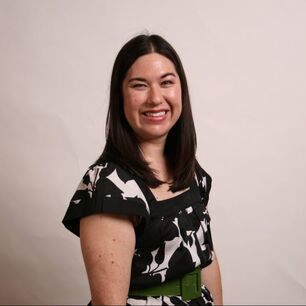 Erika Katayama (she/her) is the Associate Director, Interpretation at the Seattle Art Museum. With 20+ years of experience in multiple museum departments, she has worked at federal, state, and private institutions. Her work has taken her to Louisiana, Texas, Washington DC, Oklahoma, and California. She is committed to access and inclusion within all areas of museums and is currently writing a book about issues of diversity (and the lack thereof) within exhibition design. Her previously held roles on the West Coast have included advisory committee membership for DEAI initiatives for the California Association of Museums, Sr. Director of Audience Engagement at the Museum of Us, and Director of Visual Learning at the Museum of Photographic Arts. Outside of work, she volunteers as a Girl Scout troop leader for 17 5th graders. BACC: How does your professional, community, and/or cultural work inform your role as a BACC Board Member? Erika: In particular, I am especially excited for BACC’s outreach efforts to show young people the various careers that are available to them that combine art, science, and education. I want our field to continue to diversify, and BACC is demonstrating the wide area of opportunities that exist. Additionally, I want people to see themselves reflected in these various jobs, one of the reasons why representation matters. I know what it is like to be the “only” in the room and BACC is helping to break down the systems and structures of access and gate-keeping. B: What excites you most about being on the BACC Board? E: My participation on the board from Seattle means that I am helping to solidify BACC’s place as a regional resource, not just for Southern California. I want to help amplify the work that is being done, but also create a framework for sustainability and growth of that work for the West Coast and beyond. 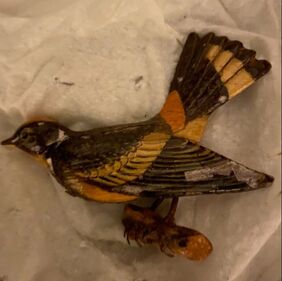 B: If you could have one artwork or artifact (personal or otherwise) conserved by the BACC team, what would it be and why? E: Like tens of thousands of other Japanese-Americans, my grandma was incarcerated at Poston in Arizona during WWII. A friend of hers there made a beautiful carved and painted bird brooch, which my grandma has now gifted to me. There are some paint losses and the object is quite fragile. I intend to eventually donate the brooch to the Japanese American National Museum. While lovely, the brooch serves to remind us all of that horrible chapter in American history. 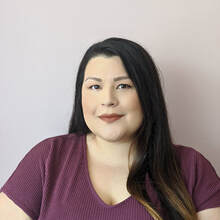 As one of the few nonprofit regional conservation centers in the United States, and the only such center in the western region, the Balboa Art Conservation Center is undergoing transformational change as it shifts into a radically inclusive and accessible art conservation organization. The BACC Board helps nourish this shift while ensuring the organization's vision for inclusion has long-term systemic impact. The BACC Board of Trustees is led by Board President Dana Springs and boasts a board membership that is 50% BIPOC (Black, Indigenous, and People of Color). In addition to its racial diversity, BACC board members are located throughout BACC’s service area, including Seattle, the Bay Area, Los Angeles, and San Diego. They bring a range and depth of expertise in community organizing, arts management and advocacy, fundraising, conservation, education, and financial management. Their diverse perspectives and skills are essential as BACC seeks to fulfill its vision for equity and healing within our own structure and workplace, as well as the communities we serve. Throughout 2023, we are highlighting each of our Board Members to better understand what excites them about being a part of the BACC Team at this transformative time. Kristen Mihalko (she/her) has worked in the nonprofit sector focusing on programming and community building since 2010. As the Director of Operations at the Balboa Park Cultural Partnership, she oversees a number of programs, including the Balboa Park Explorer Pass program, and utilizes her skills in communication, event planning, program development, and IDEA (inclusion, diversity, equity, and accessibility) to increase engagement opportunities that broaden and create an inclusive Balboa Park experience for all. In addition to BACC, she also serves on two museum association boards: California Association of Museums and Western Museums Association and volunteers her time as a Committee Member for Nonprofit Solutions in San Diego. BACC: How does your professional, community, and/or cultural work inform your role as a BACC Board Member? Kristen: I’ve worked in nonprofits my entire career which has allowed me to work with many different communities and cultures. My experience deepened my commitment to creating a world that is more inclusive, equitable, diverse, and accessible for all people. It has also given me the ability to approach topics with curiosity and to think more critically. These skills allow me to better support the many efforts of the BACC team and work alongside my fellow board members to build a board culture that is collaborative, supportive, and community-centered. B: What excites you most about being on the BACC Board? K: I love learning about all the amazing work happening at BACC. Leticia is leading a fantastic team of professionals and I very much appreciate their commitment to creating a more inclusive and equitable conservation field. I look forward to seeing the team grow and the implementation of a fellowship program that provides opportunities for BIPOC communities. B: If you could have one artwork or artifact (personal or otherwise) conserved by the BACC team, what would it be and why? K: This will sound incredibly cheesy but I have an oil painting on wood of my dearly departed cat, Riley. This particular painting is especially important to me because I commissioned it through a friend who specializes in oil painting. I love that not only did I have an opportunity to support my friend but that I have this beautiful portrait of my favorite cat. I miss him all the time but I enjoy passing by his portrait in my hallway every day and being reminded of him. I would love to be able to enjoy this piece for years to come. 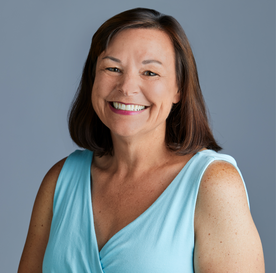 As one of the few nonprofit regional conservation centers in the United States, and the only such center in the western region, the Balboa Art Conservation Center is undergoing transformational change as it shifts into a radically inclusive and accessible art conservation organization. The BACC Board helps nourish this shift while ensuring the organization's vision for inclusion has long-term systemic impact. The BACC Board of Trustees is led by Board President Dana Springs and boasts a board membership that is 50% BIPOC (Black, Indigenous, and People of Color). In addition to its racial diversity, BACC board members are located throughout BACC’s service area, including Seattle, the Bay Area, Los Angeles, and San Diego. They bring a range and depth of expertise in community organizing, arts management and advocacy, fundraising, conservation, education, and financial management. Their diverse perspectives and skills are essential as BACC seeks to fulfill its vision for equity and healing within our own structure and workplace, as well as the communities we serve. Throughout 2023, we are highlighting each of our Board Members to better understand what excites them about being a part of the BACC Team at this transformative time. Karen Coutts (she/her/hers) is founder of KC Nonprofits, a consulting firm which launched in 2011 and is focused on advancing the needs of nonprofit organizations through strategic planning, fundraising, and high level project management. Karen received her Master’s degree in art history and museum studies from Boston University and worked in museums on the east and west coasts. Over time she gained expertise in various areas including: philanthropy, strategic planning, board engagement, program development, and leadership. Hallmarks of Karen’s work style include a strong belief in her client’s missions, a personalized approach to help them reach their goals, and a warm smile. She believes every Zoom meeting should include at least one cat, dog, or child. BACC: How does your professional, community, and/or cultural work inform your role as a BACC Board Member? Karen: I’m proud to work with arts-based clients with diverse missions including art museums, cultural organizations, and historical societies. Additionally I work with a variety of groups focused on under-resourced communities that serve youth, refugee and immigrant communities. Having experience with these different types of nonprofits helps me to understand the need for more traditional conservation, as well as the importance of expanding the construct of what conservation might look like to make it more accessible and equitable. B: What excites you most about being on the BACC Board? K: Having a front row seat to the work the BACC team is doing –it will change the future of conservation, and I couldn’t be more proud or excited to be a part of that. B: If you could have one artwork or artifact (personal or otherwise) conserved by the BACC team, what would it be and why? K: When I travel I am constantly seeing art and often there are pieces where I think, “This work could use a little TLC from BACC.” Last summer I was in Italy and saw some 13th-century religious icons in dire need of help; I texted the BACC conservators with a picture of one of the paintings. They suggested they hop on a plane to join me so they could get right to work. Sadly, BACC’s nonprofit budget would not accommodate;) Right now the piece I’m most interested in seeing is Ernie Silva’s Rain House at The New Children’s Museum. This is an important artwork that has some extra special needs as it was built for kids. Not only does it need to look great, and inviting– it needs to support hundreds of thousands of kids each year climbing on, jumping around, and playing inside it. I had the good fortune of being a staff member at The New Children’s Museum when it opened to the public with this version of the Rain House in 2008 (there was an earlier Rain House from 1993). Now, I’m back as a consultant for the museum, and I know they have hopes to conserve the Rain House. It’s a vibrant piece which I know will continue to enchant families for many more years. Did I interest you in learning more about the Rain House? Visit The Rain House | The New Children's Museum (thinkplaycreate.org) perhaps you’d like to support its preservation with a donation to BACC. As one of the few nonprofit regional conservation centers in the United States, and the only such center in the western region, the Balboa Art Conservation Center is undergoing transformational change as it shifts into a radically inclusive and accessible art conservation organization. The BACC Board helps nourish this shift while ensuring the organization's vision for inclusion has long-term systemic impact. The BACC Board of Trustees is led by Board President Dana Springs and boasts a board membership that is 50% BIPOC (Black, Indigenous, and People of Color). In addition to its racial diversity, BACC board members are located throughout BACC’s service area, including Seattle, the Bay Area, Los Angeles, and San Diego. They bring a range and depth of expertise in community organizing, arts management and advocacy, fundraising, conservation, education, and financial management. Their diverse perspectives and skills are essential as BACC seeks to fulfill its vision for equity and healing within our own structure and workplace, as well as the communities we serve. Throughout 2023, we are highlighting each of our Board Members to better understand what excites them about being a part of the BACC Team at this transformative time. 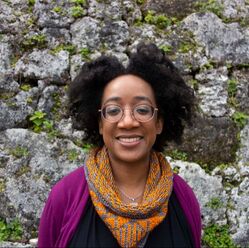 Anya Dani (she/her/hers) is an objects conservator specializing in community-based conservation. She is currently the Director of Community Engagement and Inclusive Practice/Lecturer at the UCLA/Getty Interdepartmental Program in the Conservation of Cultural Heritage where she develops collaborative projects focused on preserving Black cultural heritage. She is also a lecturer in the Museum Studies Department at San Francisco State University, a Professional Associate of the American Institute for Conservation (AIC), and a co-founder of the Black Art Conservators Group. Previously, Anya has worked as a conservator for the Stanford University Archaeology Collections, the Okinawa Institute of Science and Technology, and the New Mexico Department of Cultural Affairs. She received both her MS and BA in art conservation from the University of Delaware. She has particular interest in uplifting underserved communities through preservation, decolonizing collections stewardship, and increasing racial justice, equity, and inclusion in cultural heritage conservation. Although she’s moved around a bit, Anya mostly grew up in Delaware. She currently lives in the San Francisco Bay Area with her husband, two kids, and a cat. She loves baking, lindy hop dance, and slowly nurturing her California native garden. BACC: How does your professional, community, and/or cultural work inform your role as a BACC Board Member? Anya: I’m a trained objects conservator who has worked at cultural institutions and universities both in the US and abroad, so I have a wide understanding of the conservation field and bring an insider’s view of conservation to the Board. My international work (I lived in Japan for 10 years) has helped me realize that conservation can come in many forms. I also have a background working on diversity, equity, inclusion, and accessibility (DEIA) in conservation. I want to help the BACC Board incorporate DEIA values into everything that it does. B: What excites you most about being on the BACC Board? A: I am most excited about supporting BACC’s radically inclusive vision for conservation. I believe that the conservation field needs to evolve in order to thrive, and BACC is a shining example of how to partner with communities and center equity in conservation. I want to do whatever I can to help BACC expand its scope, to partner with historically underserved communities, and to help preserve a wider range of cultural heritage. B: If you could have one artwork or artifact (personal or otherwise) conserved by the BACC team, what would it be and why? A: Even though I’m a conservator, I’m not a paper or photo specialist. So I would love for BACC to conserve some family crayon (early photography) portraits that I have at home. They probably date to the late 19th century. The photos are yellowed, brittle, and in much need of help. |
Categories
All
Archives
June 2024
|
